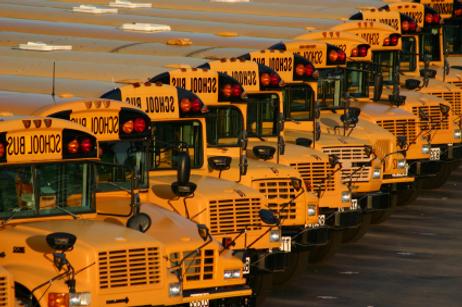The big yellow school bus that lumbers through residential streets throughout the school year is a sight often taken for granted by parents and students alike. However, those buses may become scarce in New York if dire predictions about a transportation strike in New York City ring true. A union representing city school bus drivers has warned of an impending strike if their labor demands are not met soon.
The Dispute Leading Up to Strike Talk
According to a New York Daily News report, local 1181 of the Amalgamated Transit Union is the group threatening the strike. The primary point of contention is a demand by the union that pre-kindergarten bus drivers receive seniority-based job protection like other school bus drivers in the city. The union wants these bus drivers to receive protection, even if their current company does not win a new contract. The concern arose when city officials began talking about collecting bids for a new transportation company when the contract expires in June of next year.
The president of the drivers’ union, Michael Cordiello, told the Wall Street Journal that if the city did away with senior protections for experienced drivers, the result could be many more unprepared bus drivers on the streets of New York City. He mentioned a charter bus accident in the Bronx that occurred in May, killing 15 people.
This video reports on the 2013 school bus strike in New York City.
“The last thing we need is to bring that level of risk to the buses New York City parents depend on to get their children to school safe and sound,” Cordiello said in a statement reported by the Journal. However, despite concerns, Cordiello also emphasized that while a strike was likely, there were no immediate plans.
Jobs are also at the center of the debate, particularly in light of current economic conditions around the city. Cordiello explained to the New York Daily News, “In a time when the economy is failing and people need to be in work, this is all about protecting jobs.”
Why the City Won’t Budge
New York City officials have refuted the union's demands, stating that they are not legally allowed to make such a promise to New York school bus drivers. The city has also said that if drivers walk out, they would violate the law by striking against a third party. Several bus companies do not agree with their drivers’ union and have said that if the union goes on strike, they will go to court to prevent it.
“We will do everything in our power to legally prevent our employees from violating their collective bargaining agreement, including going to court for an immediate injunction,” Domenic Gatto, president of Atlantic Express Transportation Corp., told the Wall Street Journal. Gatto said his company, the largest school bus company in the city, is “vehemently opposed” to a union strike.
Carolyn Daly, a spokeswoman for four of the city’s bus companies, urged for prudent action. Daly told the New York Times, “It is in everyone’s best interest that cooler heads prevail and our drivers and matrons stay on the job.”
This video is a documentary film that explores the recent New York City bus strike conducted by Amalgamated Transit Union 1181.
New York Mayor Michael Bloomberg called the demands “outrageous.”
In the New York Times, Bloomberg stated, “The union representing school bus drivers is seeking something that we are not allowed to offer: job guarantees for certain drivers.”
However, a similar clause is already included in the contracts of other school bus drivers who transport older children to and from school. For three years, union officials have been arguing that the provision should also apply to preschool bus drivers. Still, the city changed the rules last summer when it asked New York Governor Andrew Cuomo to veto a bill that would have established the job protection rule without court involvement.
How the Strike Would Affect New York Families
Now that New York officials have made the possibility of a strike public, families throughout the city are scrambling to find alternative modes of transportation to get their children to school every day. According to the San Francisco Chronicle, the strike will impact about 152,000 students, including many special-needs children.
“We continue to hope that the bus driver and escort union will not take such unwarranted action in response to what is the legal, proper course of action for the Department of Education to take,” School Chancellor Dennis Walcott told the Chronicle.
The mayor and Chancellor Walcott told the Chronicle that they feel responsible for ensuring students can get to and from school. Still, their assertions haven’t been sufficient to allay many parental worries.
This video shows how the 2013 New York City bus strike inconvenienced parents.
“It’s particularly challenging for kids with special needs,” Kim Sweet, Advocates for Children of New York executive director, told the Wall Street Journal. Parents have their routines for getting their kids to school on time. This is going to wreak havoc on people’s lives.”
To help families with transportation, the city provides MetroCards to parents with children who typically catch a school bus at a designated stop. City officials have already spent more than $1.3 million to purchase 300,000 MetroCards for families that need them. In addition, the city has offered to pick up the tab for private transportation fees like taxis that are better equipped to get special needs students to and from school. Schools will also provide a two-hour reprieve for children late during the strike.
Questions? Contact us on Facebook. @publicschoolreview















